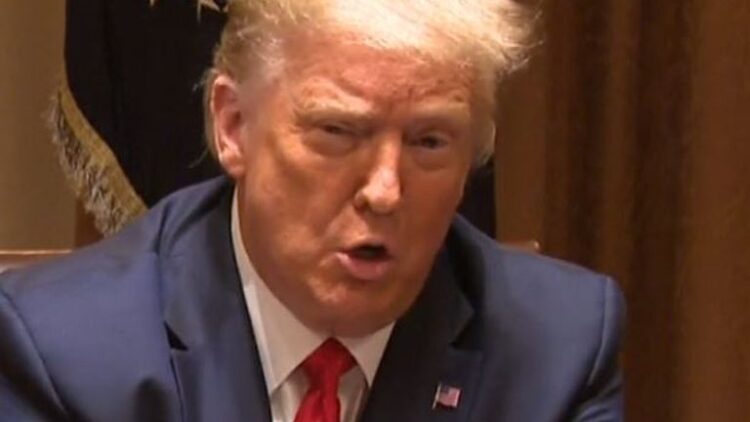By Aaron Miller-
The Supreme Court cleared the way on Thursday for prosecutors in New York to seek President Trump’s financial records in a blow to the U.S president who has fought hard to prevent the records going public.
The decision in the case said Mr. Trump had no absolute right to block release of the papers . The decision ranks alongside landmark rulings that required President Richard M. Nixon to turn over tapes of Oval Office conversations, and another which forced President Bill Clinton to provide evidence in a sexual harassment suit.
“No citizen, not even the president, is categorically above the common duty to produce evidence when called upon in a criminal proceeding,” Chief Justice John G. Roberts Jr. wrote for the majority.
He added that Mr. Trump could still raise objections to the scope and relevance of the subpoena requesting the records.
Addressing the issue, Chief Justice Roberts said There were “200 years of precedent establishing that presidents, and their official communications, are subject to judicial process, even when the president is under investigation,” he said.
Echoing the same principles of the ruling, Justice Kavanaugh said: “In our system of government, as this court has often stated, no one is above the law. That principle applies, of course, to a president.”
Mr. Trump had asked the court to block both sets of subpoenas, which had sought information from his accountants and bankers, not from Mr. Trump himself. The firms have indicated that they would comply with the courts’ ultimate rulings.
Mr. Trump’s lawyers had argued that he was immune from all criminal proceedings and investigations so long as he remained in office and that Congress was powerless to obtain his records because it had no legislative need for them.
Jay Sekulow, a lawyer for Mr. Trump, portrayed the decisions as at least a temporary victory.
“We are pleased that in the decisions issued today, the Supreme Court has temporarily blocked both Congress and New York prosecutors from obtaining the president’s tax records,” he said in a statement. “We will now proceed to raise additional constitutional and legal issues in the lower courts.”
The majority 0of the court rejected the president’s argument that he was immune from having his records subpoenaed by state prosecutors.
They also rejected the Justice Department’s more argument that state prosecutors must satisfy a demanding standard when they seek information concerning a sitting president.
Subpoena
The New York case was related to a subpoena to Mr. Trump’s accounting firm, Mazars USA, from the office of the Manhattan district attorney, Cyrus R. Vance Jr., a Democrat.
The firm sought eight years of business and personal tax records in connection with an investigation of the role that Mr. Trump and the Trump Organization played in hush-money payments made in the run-up to the 2016 election.
Mr. Vance expressed satisfaction with the ruling. “This is a tremendous victory for our nation’s system of justice and its founding principle that no one — not even a president — is above the law,” he said in a statement.
“Our investigation, which was delayed for almost a year by this lawsuit, will resume, guided as always by the grand jury’s solemn obligation to follow the law and the facts, wherever they may lead.”
Mr. Trump had sued to stop the accounting firm from turning over the records, but lower courts ruled against him. In a unanimous ruling, the United States Court of Appeals for the Second Circuit, in New York, said state prosecutors may require third parties to turn over a sitting president’s financial records for use in a grand jury investigation.
In a separate decision, the court ruled that Congress could not see many of the requested records now.
It said the case should be returned to lower courts to examine whether Congress should narrow the parameters of the information it had demanded.
The chief justice wrote the majority opinions in both cases, and both were decided by 7-to-2 votes. The court’s four-member liberal wing voted with him, as did Mr. Trump’s two appointees, Justices Neil M. Gorsuch and Brett M. Kavanaugh




